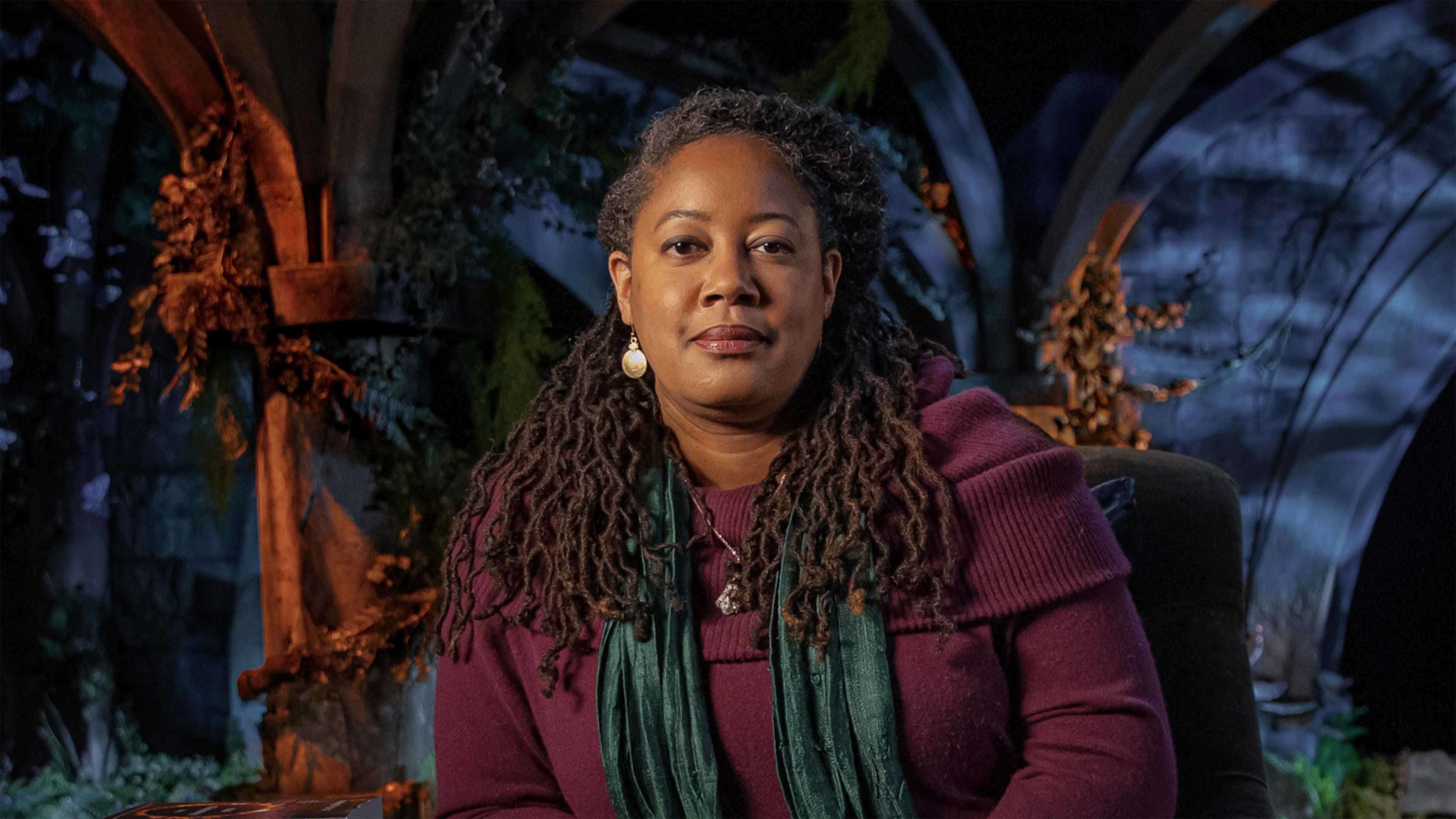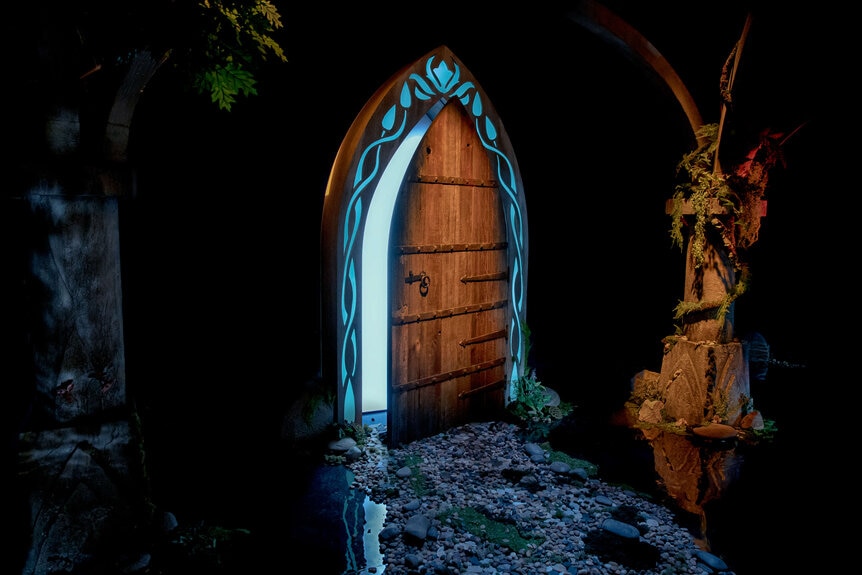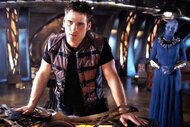Create a free profile to get unlimited access to exclusive videos, sweepstakes, and more!
N.K. Jemisin's MasterClass on fantasy & sci-fi writing will show you a 'different way' of doing things

If you're a big science fiction and fantasy book fan, odds are you've heard of N.K. Jemisin. Not only is she the first author to win the Hugo Award for Best Novel three years in a row for her Broken Earth trilogy — most recently picking up the Hugo Award for Best Novelette for Emergency Skin — but her other award-winning series, the Inheritance Trilogy, is being optioned to be adapted into a television series.
However, her latest project finds her doing something a little different, as she teaches a self-guided course on writing fantasy and science fiction for MasterClass. Over the course of 16 video lessons, Jemisin walks interested students through the basics of building their own fictional worlds and crafting compelling characters, much like those found in her own writing. For the bestselling author, it was a chance to return to her roots as a teacher, having taught courses on other subjects during her time as a career counsellor and a counselling psychologist.
"I've been teaching sessions on world-building, character development, and things like that all along," Jemisin tells SYFY WIRE. "It's just I've been doing them relatively small scale with going to conventions and doing them at writing workshops. MasterClass gave me a chance to broaden my reach, really. That's what it came down to."
The video sessions also gave Jemisin a chance to expand on the subject matter for the classes she's been teaching, as they allow her to take as much time as she wants, and give her the opportunity to dig into specific lessons, for more detail compared to what she can normally manage in person. As a result, the entire MasterClass spans a little over four hours, compared to the 30-minute to an hour she normally teaches.
"There was an element of talking to people who I knew were interested and were at a certain point in their writing development," Jemisin says, when asked whether she might have changed or learned anything new about her own writing process, in terms of teaching it. "Normally I give this talk to people who are kind of thinking about writing or sometimes aren't writers at all... So really that was it, knowing that the audience was would-be writers or people who are early in their writing career, allowed me to narrow it down and drill deep."
As Jemisin states early on in the course, a lot of her writing process is actually influenced by her background in psychology, with most of her influences stemming from the science fiction and fantasy she read growing up. (She cites Octavia Butler as an influence.)
"When I’m developing characters, I understand that if you've got a traumatized character, that character is going to keep people at arm's length, for example, and isn't necessarily going to look like what trauma in the media is often represented as," Jemisin says, offering up Law and Order as an example of this. "You see people distraught, crying and a lot of cases, people will actually be standoffish and very outwardly calm and cool. It's not necessarily a sign that they weren't traumatized. It's just differing from what people think."
Jemisin’s course doesn’t just outline how to create your own world and populate it with characters. It’s also a masterclass on how to write characters of marginalized backgrounds — something her own work is often praised for. And while it may seem quite basic to stress the importance of research and not simply borrowing another country’s culture for an alien species, Jemisin does so anyway.
"It’s not a simple process. You have to tread carefully. It’s a thing where you do need help,” Jemisin says about the value of doing research and speaking to people within the communities you’re trying to depict, be they of a different ethnicity, sexuality, or gender. “I just wanted to get that across to people that it’s a struggle even for me, but it’s one that’s worthwhile because you have to struggle for anything in writing. If you are developing a world based on geology, for example, you’ve got to study some geology."
She continues, "If you’re putting people in a story you have to study people… For me, it doesn’t seem outside of the norm to ask a writer to do. It’s part of the work that makes you a writer."
And like other fantasy and science fiction authors writing today, Jemisin says this inclusivity within her worlds is organic to her process as she tries to write the world as she sees it. "I live in New York City. I look around outside and I see people from so many different backgrounds, so many different races, so many different socio-economic strata, and I want to include those people in my stories because I like stories that feel like real worlds,” she says. “And some of it is in response to things I see happening a lot in media where I’m not being shown a real world. So TV shows set in New York City that feature nearly entirely white casts with the occasional Black walk-on who’s just the guest star and you never see them again. Things like that. I live in Bed-Stuy, so that’s not going to happen for me. In some ways, it’s just organic to my reaction to media."
Jemisin’s course also stresses another aspect of modern science fiction: the move away from the pursuit of scientific accuracy to a focus on characters that feel real to readers instead. But she views that as an emphasis on social science versus what’s considered “hard” science, which again comes back to her background in psychology, though she’s also interested in physics and geophysics. But at the end of the day, that’s not as important.
"Science fiction’s veneration of scientists means that a lot of people who did not have that social science background, or maybe didn’t respect it, got the chance to write science fiction and set that course," she states. "And there's a number of different figures along the way, some of the more influential editors and things like that, who basically kind of frowned on reasonable or realistic sociological and psychological parameters. I don't. That's not how my mind works. Those editors probably wouldn't have liked me. People like Joseph Campbell and so on, who were kind of well-known for having been discriminatory towards women and people of color."
She goes on to say: "So that’s a modern correction of that. It's 2021, we don't need to be pretending that the world is all middle American, lantern-jawed, white dudes going forth and sticking their phallic objects in people's face. There's a lot of different ways that we can do things."
The course doesn't just focus on teaching people how to write. It also sees Jemisin offer advice on how to embark on (and navigate) the path to getting published, as well as finding an agent. However, the very last session of her MasterClass is directed specifically at authors from marginalized communities, with advice on how to navigate social media and the internet at large — all of which Jemisin feels was absolutely necessary based on her own experiences.
"If I'm talking to an audience of writers, I always include a component like that if I have time because that was one of the biggest surprises for me when I moved into this business," she says. "Granted, I was never expecting to become a MacArthur Genius Grant winner and all this other stuff. I just wanted to sell some books, but it did not occur to me that the act of creating while Black is a political act, and is treated as a revolutionary or challenging act by some. I guess I should have predicted that reaction. I had to react to it. So now I try and prepare other people to proactively be ready for it."
But at the end of the day, Jemisin just wants her students to feel like they too can write science fiction and fantasy novels of their own, and be successful doing it.
"It is possible to make it in this business," advises Jemisin. "It doesn't necessarily mean they're all going to be bestsellers and make a million dollars and sell the next major million dollar movie franchise. But you can sell stories, you can get your work and your artistic vision out there and enjoy it."
N. K. Jemisin Teaches Fantasy and Science Fiction Writing is currently available to follow along with on MasterClass.



























